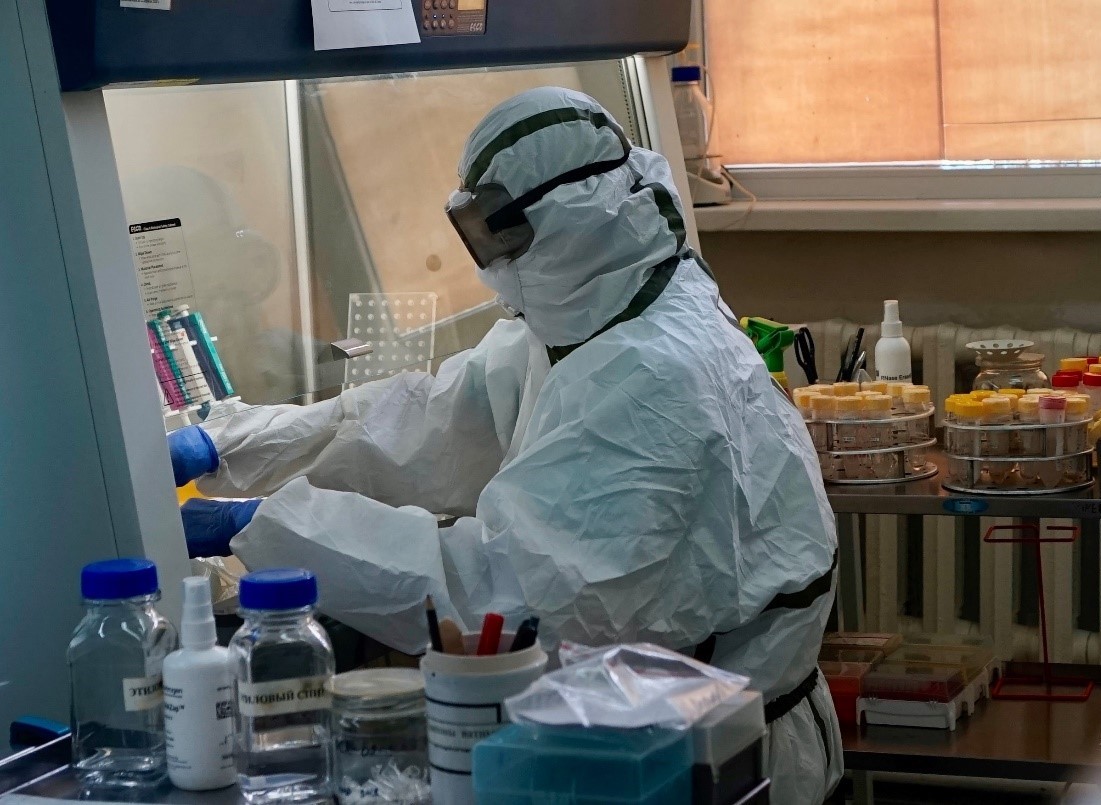Can We Achieve Lasting Health System Resilience? Only If We Are Willing to Institutionalize the Harsh Lessons of COVID-19

By James White
July 2021 - In many people’s minds, the COVID-19 pandemic is ending or over. Vaccines have been produced, some countries are reporting negligible incidence, and in many parts of the world there is an understandable eagerness for a return to “normal life.” Indeed, our jobs, family ties, education, and social connectedness depend on it.
Yet we as public health professionals know – as do many people and families dealing with illness and death around the world – the pandemic is far from over and is in fact escalating. As recently reported by the Wall Street Journal, more people have died of COVID-19 already in 2021 than in all of 2020. Variants of concern and a rapidly growing list of additional variants of interest, starkly uneven global distribution of and access to vaccines, vaccine hesitancy and lack of confidence in the health services that deliver them, and limited infrastructure in many places to adequately monitor, sequence, and respond to viral changes are all driving what the World Health Organization calls a “two-track pandemic.” The term refers to the urgent situation in which access to COVID-19 testing, case management, and vaccination are becoming increasingly uneven across the globe.
In February 2020, as the scale of COVID-19 was still emerging, I wrote about the overlooked role of communities and community health systems in successfully responding to novel threats. While no one could have predicted the unprecedented events that have unfolded since then, the recommendations in that article underscored that we as a collective global community have already been through shock events many times before. We know what to do and we should have been prepared.
The 2014 Ebola outbreak demonstrated loud and clear that the best defense against any health emergency is a well-functioning health system. Lessons from that crisis underscored the importance of engaging in preparedness planning, developing sufficient surge capacities, strengthening supply chains, stockpiling PPE and other essential materials, and developing epi-surveillance and health information systems. It is noteworthy that investments made to institutionalize these lessons, at least in part, are helping countries in West Africa control COVID-19. The same cannot be said for health systems in numerous other countries.
The events of the past 18 months are once again underscoring the importance of generally strong, equitable, and accessible health systems. COVID-19 is not the only threat we face, and as we prepare for the future it is critical that we begin to sufficiently invest in the foundational health system strengthening required to develop lasting resilience. The USAID Local Health System Sustainability Project (LHSS) has sought to do this in all its work.
In Central Asia, LHSS supported USAID’s investment in broad laboratory strengthening infrastructure for RT-PCR and mass spectrometry – to prepare national diagnostic systems for other novel micro-biological threats in the future. In Colombia, we supported the government in developing systems and preparedness plans for deploying rapid response teams – to help prepare subnational government entities to surge human resources in future emergencies. In Jordan, we supported the Ministry of Health in developing a database of private sector health workers willing to provide COVID-19 care at public sector hospitals during peak demand. The ministry is now using the database to update its health worker licensing and training management systems with the aim of improving health workforce capacity, quality of care, and preparation for future health emergencies. And in Zimbabwe, we are identifying health system resilience gaps and opportunities – to strengthen future preparedness. These are all part of broader collective efforts with governments, international partners, and communities aimed at using the lessons of COVID-19 in context to reimagine more resilient national health systems for the future.
To be resilient means to learn from your mistakes. As the response to COVID-19 continues worldwide, the greatest threat to our collective welfare is premature celebration or a desire to ignore what is occurring. We must ingrain the lessons we are being taught into our individual and collective memory, work tirelessly to close the gap in global diagnostic and vaccine access, and continue to reinforce the crucial priorities of preparedness in contexts where COVID-19 seems a passing threat.
James White is Co-Director of the Infectious Disease and Global Health Security Market Center at Abt Associates. He serves as LHSS Project Senior Technical Advisor for Health System Resilience.
